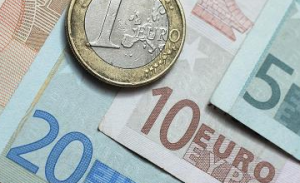
The crisis in Greece, also called the Greek Depression has been plaguing the country for several years now. Greece has been struggling to repay its debts and relies heavily on bailouts and foreign assistance to recover. Usually, borrowing beyond means is a characteristic of companies on the edge of liquidation, and not of governments.
When a country is in such a position, the dilemma arises if it is wise to invest in that country. Many would say it would be silly to invest in a debt-stricken climate, while others think, and the past backs up their belief, that this is exactly the time for investments. It is widely known that buying is recommended when prices are dropping (and they do during the recession). Still, the Greek depression is not a short-time event which will be solved soon. The outcome is quite far-fetched.
Greece in the Past Decade
The Morgan Stanley Capital International (MSCI) Index observes markets around the world, including, of course, Greece. It indicates the viability of stocks for individual countries, and many use it as an important yardstick for a country’s economic development. Observing the MSCI of Greece, a significant change or deterioration can be spotted. The downfall started in 2008. Lovely are the memories of 2006 and 2007 when the Greek Index was at 1,040. From 2008, it started to drop, ending up at 53.68 in 2015. This means that the Index dropped to 5% of its highest value.
Greece even faces a threat of being completely left out from the Index record, after it was downgraded to an emerging economy from a developed country. Even if investors are rubbing their hands because the stocks have potential to increase in value, there is also the other side of the medal. As we all know, these kinds of investments represent a higher risk. Many investors think and believe that Greece cannot sink more, and they are positive that the assets will go up. But Greece is interconnected with the entire EU and the euro, which also play a crucial role in investments.
Euro versus Stock Investment
 Greece might be at a low point, but still, plenty of Greek companies operate under normal conditions with a satisfactory production and sales rate. Still, the financial crisis cannot solely be linked to Greece. Even if the Greek Index would rise next year, in two years, etc., investors would still have to face the depreciation of the euro in comparison to the USD.
Greece might be at a low point, but still, plenty of Greek companies operate under normal conditions with a satisfactory production and sales rate. Still, the financial crisis cannot solely be linked to Greece. Even if the Greek Index would rise next year, in two years, etc., investors would still have to face the depreciation of the euro in comparison to the USD.
So, to make it clear, even if investing in a well-off company, profit-generating company in Greece, there are still risks involved, considering the currency exchange rate. If the dollar remains strong against the euro, investors will lose a lot of profits in the conversion process. The currency value significantly influences investment profit.
The Investment Risk
Investments are risky either way. No one can tell for sure how the market will look tomorrow, but reflecting on these particular Greek examples, there are two options.
Those who are brave and are ready to take a risk can invest in Greece directly, and there is a realistic chance that the Greek Index will climb. The very brave can opt for investing in Greek bonds and hope for the best.
The less brave investors, who still want to participate somehow in the Greek oversold market and bargaining, can still find successful individual Greek companies, possibly one which participates in the US Stock Market to avoid EUR/USD exchange rate costs.
In the end, every investor or individual decides for themselves whether it is worth the risk. There are many reasons that justify investments in the country, but also many reasons speak against it. Greece is in a risky place right now, and outcomes cannot be predicted at this point since it is uncertain if Greece will be able to meet its payment obligations regularly.




